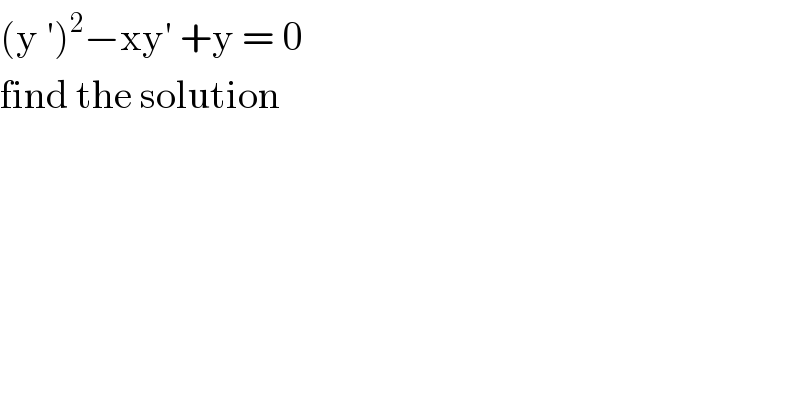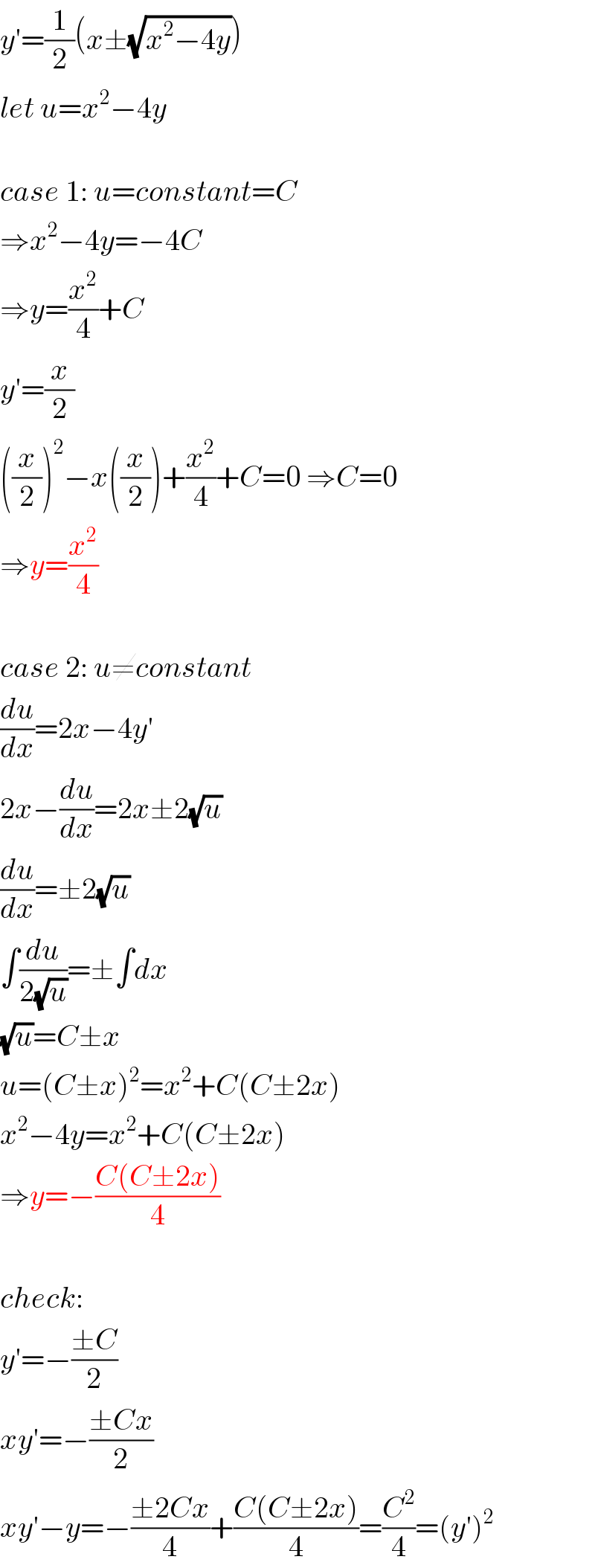
Question and Answers Forum
Previous in Differential Equation Next in Differential Equation
Question Number 87059 by jagoll last updated on 02/Apr/20

Answered by mr W last updated on 03/Apr/20

Commented by jagoll last updated on 03/Apr/20

Commented by mr W last updated on 03/Apr/20

